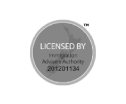So, you’ve received the dreaded news: a negative skills assessment for your Australian visa application. It’s undoubtedly a setback, especially when you’re meticulously planning a significant life change. Don’t panic! A negative assessment isn’t necessarily the end of your Australian dream. This article outlines five strategic steps you can take to reassess your options and potentially turn things around.
Understanding the Sting: What a Negative Skills Assessment Really Means
Before diving into solutions, let’s clarify what a negative skills assessment signifies. An assessing authority, designated by the Australian Department of Home Affairs, evaluates your qualifications and work experience against Australian standards for your nominated occupation. A negative outcome means the assessing body doesn’t believe you meet those standards.
This could result from several factors:
- Insufficient or Irrelevant Experience: Your work history might not align closely enough with the specific duties defined for your nominated occupation in Australia. The Australian and New Zealand Standard Classification of Occupations (ANZSCO) is the ultimate reference.
- Inadequate Qualifications: Your academic qualifications may not be equivalent to the required Australian standards. These requirements can be found within the assessing authority’s documentation.
- Missing Documentation: Simply failing to supply all required documentation when requested.
- Unverifiable Information: The authorities could not verify the information you provided, for example, if past employers do not respond to requests for information.
It’s crucial to understand the specific reasons for the negative assessment. The assessing authority should provide detailed feedback outlining the shortcomings in your application. This feedback is the key to your next steps.
Step 1: Decipher the Assessment and Identify the Gaps
Carefully review the assessment outcome letter. Pinpoint the exact reasons for the negative result. Were your qualifications deemed insufficient? Was your work experience considered irrelevant or not at the required skill level? Did you fail to provide adequate evidence?
Once you fully understand the ‘why,’ you can begin formulating a strategy to address the identified weaknesses. For example, if the assessment highlighted a lack of specific experience, you can focus on gaining that experience or gathering better evidence of the experience you already have.
Step 2: Explore Options for Review or Appeal
Many assessing authorities offer a review or appeal process. If you believe the assessment was incorrect or unfair, thoroughly investigate your options.
- Internal Review: Most authorities have an internal review process where a senior assessor re-evaluates your application based on the same information. This is useful if there was a clear error in the initial assessment.
- Appeal: An appeal typically involves submitting new information or evidence to support your case. You’ll need a strong justification for why this information wasn’t provided initially.
Understand the timelines and requirements for reviews and appeals. Acting quickly and presenting a well-documented case is crucial. Be aware that you are likely to have to pay an additional fee for these options. You should carefully weigh the chances of success before investing further time and money.
Step 3: Consider Alternative Assessing Authorities
Not all assessing authorities have identical criteria. Research whether other bodies assess your occupation and compare their requirements to your qualifications and experience. A migration agent can assist you in finding alternative options and help you understand the specific nuances that they may have.
However, be realistic. If the core issue is a fundamental lack of qualifications or experience, switching authorities may not solve the problem.
Step 4: Upskill or Gain Relevant Experience
This is often the most effective long-term solution. Based on the assessment feedback, identify the skills or experience gaps and actively work to close them.
- Formal Education: Consider enrolling in relevant courses or pursuing further qualifications to meet the required educational standards. Many Australian institutions offer online programs, making it easier to upskill from overseas.
- Targeted Training: Undertake specific training courses or workshops to gain expertise in areas where you are lacking.
- Strategic Job Changes: Seek employment opportunities that directly address the identified experience gaps. This may involve taking a step back in your career temporarily to gain the necessary skills.
- Volunteer Work: Engaging in voluntary work is another great way to gain relevant work experience.
Document everything meticulously. Keep records of your course completion certificates, training transcripts, and detailed job descriptions outlining your responsibilities and achievements. This documentation will be invaluable when you reapply for the skills assessment.
Step 5: Re-evaluate Your Visa Options and Seek Professional Advice
A negative skills assessment might necessitate a change in your overall migration strategy.
- Explore Alternative Visa Pathways: Investigate other visa options that may not require a skills assessment for your specific occupation. For example, employer-sponsored visas might be an option if you can secure a job offer from an Australian company.
- Consider Regional Opportunities: Some regional areas have different skilled occupation lists and may have less stringent requirements.
- Seek Expert Advice: Consult with registered Australian migration agents who are equipped to assess your situation, provide tailored advice, and guide you through the complex visa process. They can assess your eligibility for various visa options and help you develop a strategic migration plan.
Conclusion
Receiving a negative skills assessment can be disheartening. However, it’s not necessarily the end of the road. By understanding the reasons for the outcome, exploring your options for review or appeal, upskilling or gaining relevant experience, and re-evaluating your visa strategy, you can increase your chances of achieving your Australian migration goals. Remember, thorough research, persistence, and expert guidance are your allies in this journey.










